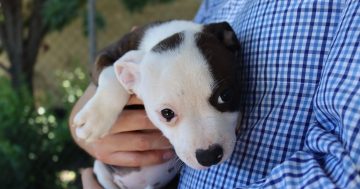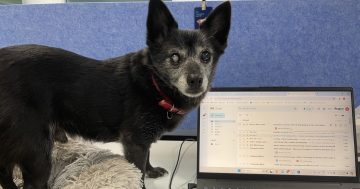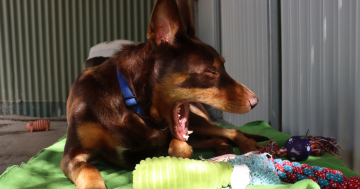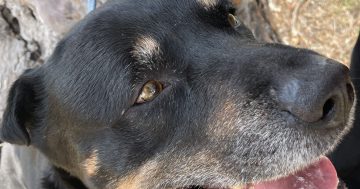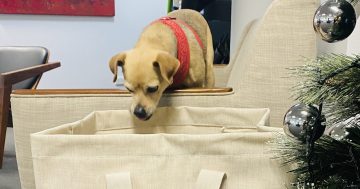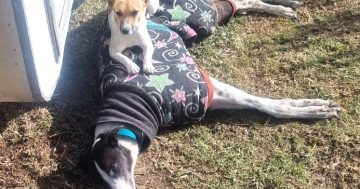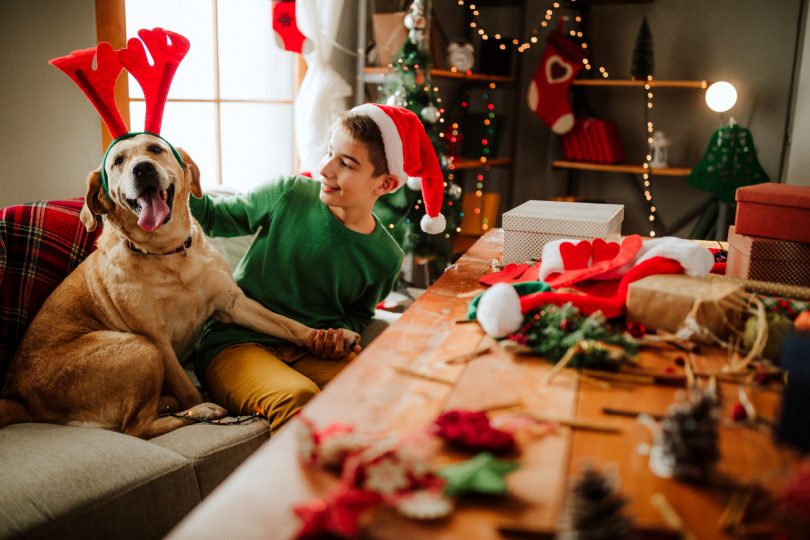
You should avoid giving your dog a ham bone at Christmas as it can be unsafe. Photo: File.
A busy house full of guests and the assorted spread of delicious Christmas foods might be exciting for humans, but the festive season can be stressful and dangerous for animals.
RSPCA ACT says being aware of the potential dangers and sources of stress for our pets will go a long way to making a happier and healthier Christmas holiday for everyone. RSPCA ACT senior veterinary nurse Adriana Ayala says some common Christmas treats can be very harmful for pets to consume.
“Many people are excited for Christmas and there is usually a lot of food around so it is tempting to share it with your pets,” she says.
“Unfortunately a lot of these foods are really bad, particularly ham as it is so salty.”
Adriana says it is best to avoid giving pets anything off the table that is high in fat, including gravy which is usually high in both fat and salt.
The fat off ham is particularly troublesome, especially in a high dose, as it could cause pancreatitis, which is potentially fatal.
Other foods to avoid are garlic and onion as it affects pets’ liver and kidneys.
“Be mindful of potato and salad dishes that may contain these foods,” says Adriana.
In particular, do not let your pets anywhere near alcohol, avocado, chocolate, Christmas pudding, coffee, cooked bones, currants, fruit cake, grapes, lollies, macadamia nuts, marinades, onion, pork, raisins or sugarless gum.
Some pets can be very crafty when it comes to plotting ways to sneak treats, so keep an eye out for any changes in appearance or behaviour (including poor breathing, excessive panting, poor breathing, muscle twitching, vomiting and diarrhoea).
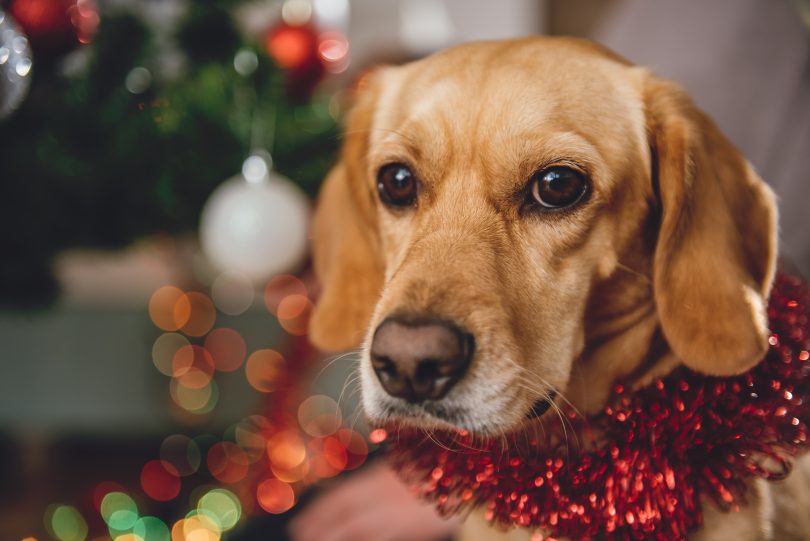
Don’t give in to those puppy dog eyes because many Christmas foods can be harmful to pets. Photo: File.
If you know your pet has consumed food they shouldn’t, keep a close eye on them but in the case of vomiting and diarrhoea, Adriana says it is best to call your vet for advice.
“Sometimes the window of opportunity is quite small so seek help sooner rather than later,” she says.
Some dogs love having visitors in their home, but similar to their human owners, a house full of guests can be a little trying after a few days, or even a few hours.
Adriana recommends creating a safe, quiet space for your animals where they can be away from noise, particularly dogs that are sensitive to changes in routines.
“It is a good idea to warn your guests – particularly children – not to go near the dog when they are eating and to keep a watch for any rough play that your animals may not like.
Some other tips include keeping Christmas decorations out of reach. A dog or cat may think baubles hanging from the Christmas tree look conveniently like toys or tennis balls, but if a plastic or glass ornament breaks in their mouth, it could cause serious damage.
Edible decorations such as candy canes can also pose a risk. It’s best to hang anything risky near the top of the tree.
If your feline friend is fascinated by tinsel or tree lights, keep an eye on those to avoid the risk of choking or electric shock.
Clean up wrapping paper quickly after presents have been opened. If chewed, wrapping paper and ribbons can prove dangerous for a pet’s intestines.
And what about that big juicy ham bone after Christmas is done and dusted? Adriana says treat the ham bone as a cooked bone.
“It has been smoked or brined, making it brittle and likely to splinter and therefore a risk to the dog,” she says.
“We recommend not giving them to your dog, but if you really want to, keep a close eye on them and remove it soon after they have enjoyed most of the meat. It is not a bone to chew on for hours.”
Adriana says there are plenty of safe ways for you to give your pet a treat at Christmas.
“You could visit your local pet store for safe treats; create a game of hide and seek with their treats in the garden; or simply cook some boneless chicken for a special Christmas dinner,” she says.












